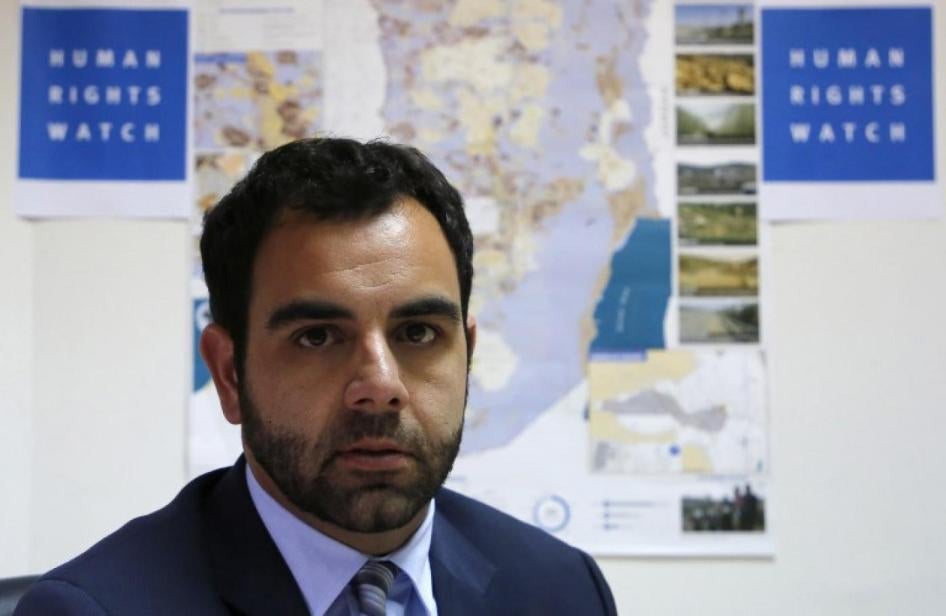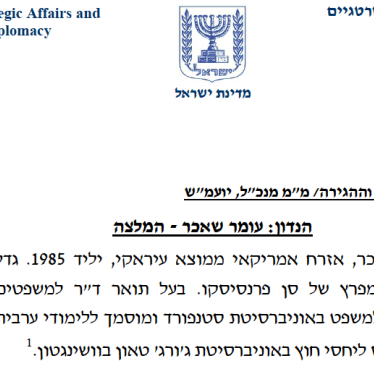(Jerusalem) – Human Rights Watch will keep documenting abuses despite the Israeli government’s expulsion of the Israel and Palestine director of Human Rights Watch on November 25, 2019. The deportation reflects the authorities’ intensifying assault on human rights. The director, Omar Shakir, will depart tonight after Israel’s Supreme Court upheld the government’s deportation order on November 5 and gave him until November 25 to leave.
Human Rights Watch’s work on human rights abuses committed by Israel, the Palestinian Authority, and Hamas will continue under Shakir’s direction. He will be based in another Human Rights Watch office in the region.
“Israel today joins the likes of Venezuela, Iran, and Egypt in barring Human Rights Watch researchers, but it, too, will not succeed in hiding its human rights abuses,” said Kenneth Roth, executive director of Human Rights Watch, who will accompany Shakir as he leaves Israel. “This decision shows why the international community must reboot its approach to Israel’s deteriorating human rights record. A government that expels a leading human rights investigator is not likely to stop its systematic oppression of Palestinians under occupation without much greater international pressure.”
Israel revoked the work visa of Shakir, a United States citizen, in May 2018 on the asserted grounds that his advocacy violated a 2017 law that bars entry to people who advocate a boycott of Israel or its settlements in the occupied West Bank.
Neither Human Rights Watch nor Shakir as its representative has ever called for a boycott of Israel. Human Rights Watch has urged businesses to stop operating in illegal settlements as part of their global duty to avoid complicity in human rights abuses – just as it calls on businesses to comply with this duty in many other countries. A district court in April, and then the Israeli Supreme Court, found that this position constitutes grounds for deportation under an expansive reading of the 2017 law.
The Supreme Court did not address Human Rights Watch’s challenge to the constitutionality of that law, including the implications that it will chill the speech of those who disagree with government policies.
Recently, Israeli authorities have sought to undermine the work of human rights activists, including denying entry to a number of other international rights defenders, maligning Israeli rights advocates, imposing burdensome financial reporting requirements on them, and raiding the offices of and arresting Palestinian rights defenders. In October, Israeli authorities prevented an Amnesty International staff member from traveling out of the occupied West Bank for undisclosed “security reasons.”
This is the first time the government has used the 2017 law to try to deport someone who is lawfully inside Israel and the first time it has ordered a Human Rights Watch staff member to leave in the organization’s 30 years of working in the country.
“Today, Israel deports Shakir because Human Rights Watch urges businesses to shun illegal settlements,” said Roth. “Who’s next – someone who calls for the International Criminal Court to examine possible crimes in Israel and Palestine or correctly calls the West Bank ‘occupied’ rather than ‘disputed’?”








